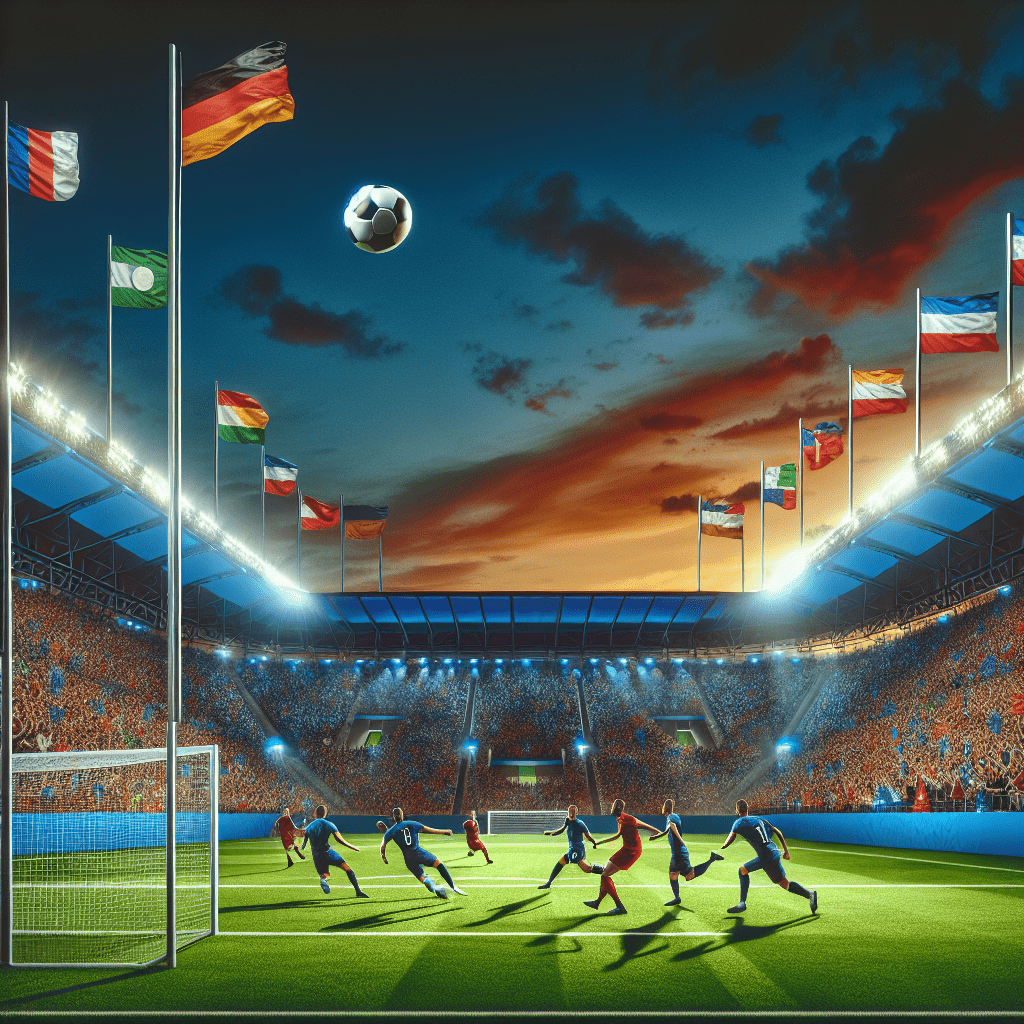[ad_1]
The Road to Victory: A Comprehensive Guide to the FIFA World Cup Qualifiers
Introduction
The road to the FIFA World Cup, arguably the most prestigious tournament in the world of football, is a long and arduous one. For many teams, the dream starts years before the actual tournament, in the form of the World Cup qualifiers. These qualifiers are a series of competitions that determine which teams will make it to the World Cup, held every four years. This article takes an in-depth look at the FIFA World Cup qualifiers, exploring their format, significance, and the journey teams undergo to cement their place in football history.
Understanding the FIFA World Cup Qualifiers
The FIFA World Cup qualifiers are a set of tournaments organized by the six FIFA confederations (AFC, CAF, CONCACAF, CONMEBOL, OFC, and UEFA) to determine the teams that will participate in the World Cup. The number of spots available for each confederation is determined by FIFA, based on various factors including the relative strength and performance of the confederations’ teams in previous tournaments.
Format and Structure
The format of the qualifiers varies between the different confederations due to the number of competing teams and geographical considerations. Generally, the qualifying tournaments involve group stages followed by knockout rounds. Teams accumulate points in the group stage, with the top teams advancing to the knockout rounds or qualifying directly for the World Cup.
AFC (Asian Football Confederation)
The AFC typically employs a multi-round format. The initial rounds might involve lower-ranked teams competing for a chance to enter the group stage. The final stage often consists of two groups, with the top teams qualifying directly and others going into inter-confederation playoffs.
CAF (Confederation of African Football)
CAF’s qualifiers usually start with a preliminary round for the lowest-ranked teams, followed by a group stage. The top teams from each group then advance to a final round of playoffs, with the winners securing their spots in the World Cup.
CONCACAF (Confederation of North, Central American, and Caribbean Association Football)
CONCACAF has frequently changed its qualifying format. The most recent format involved a hexagonal (or “Hex”) final round, where six teams competed in a round-robin format. The top teams qualify directly, with others entering play-offs.
CONMEBOL (South American Football Confederation)
CONMEBOL’s qualification process is relatively straightforward, with all of South America’s teams competing in a single round-robin group. The top teams qualify automatically, with the fifth-place team entering an intercontinental playoff.
OFC (Oceania Football Confederation)
OFC’s qualifiers often involve initial group stages leading to a final knockout round. Given Oceania’s smaller size and the fewer number of teams, its top team usually enters an intercontinental playoff rather than qualifying directly.
UEFA (Union of European Football Associations)
UEFA, with the most member associations, has a complex qualification process involving multiple group stages and playoffs. The top teams from each group qualify directly, with additional spots decided through playoffs among the runners-up.
Significance of the Qualifiers
The World Cup qualifiers are crucial for several reasons. Firstly, they ensure that the World Cup features a global representation of teams, reflecting the worldwide passion for football. They also provide lesser-known teams with a platform to compete against and potentially upset traditional powers, adding to the unpredictability and excitement of the tournament.
Moreover, the qualifiers are a source of national pride and unity. Qualifying for the World Cup can unite a country, elevate the status of its football infrastructure, and inspire future generations of footballers.
The Journey to Victory
For players and fans alike, the journey through World Cup qualifiers is fraught with hope, despair, triumph, and heartbreak. Many teams undergo a transformation during the qualifiers, honing their skills, strategy, and team spirit in pursuit of a common dream.
For some, the road ends in jubilation as they secure their spot in the World Cup. For others, the dream is dashed, sometimes by the narrowest margins – a single goal, a missed penalty, or an unfortunate defeat. Yet, even in defeat, there is honor and learning, setting the stage for the next cycle of qualifiers.
FAQs
Q: How often are the FIFA World Cup qualifiers held?
A: The qualifiers are held in the years leading up to the World Cup, which takes place every four years.
Q: Can a country qualify for the World Cup without playing in the qualifiers?
A: The host country of the World Cup is automatically qualified and does not need to participate in the qualifiers.
Q: How many teams can qualify for the World Cup?
A: The number of teams that can qualify for the World Cup has varied over the years. As of the 2022 World Cup, 32 teams are eligible to qualify. This number is set to increase to 48 teams for the 2026 World Cup.
Q: What happens if a team ties in points during the group stage of the qualifiers?
A: If teams are tied on points, tiebreakers such as goal difference, goals scored, and head-to-head results are used to determine the rankings.
Q: How are the World Cup spots allocated among the different confederations?
A: FIFA determines the allocation based on factors such as the performance of the confederations’ teams in previous World Cups and the overall strength of the confederation.
Conclusion
The FIFA World Cup qualifiers are more than just a prelude to the main tournament; they are a celebration of football’s global reach and a testament to the enduring spirit of competition. For many teams and fans, the qualifiers are a thrilling journey filled with memorable moments that encapsulate the highs and lows of international football. As the world gears up for the next cycle of qualifiers, the dream of World Cup glory beckons once again, uniting players and fans in the shared pursuit of victory.
[ad_2]






